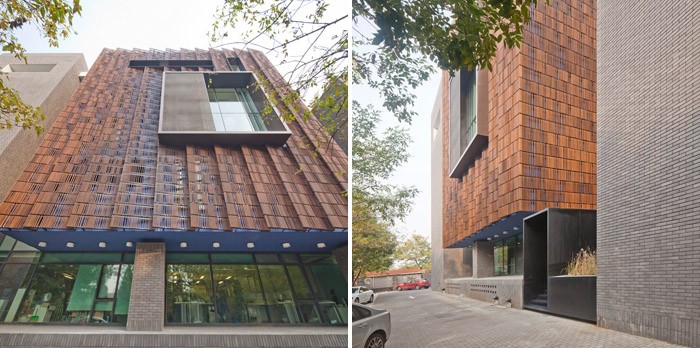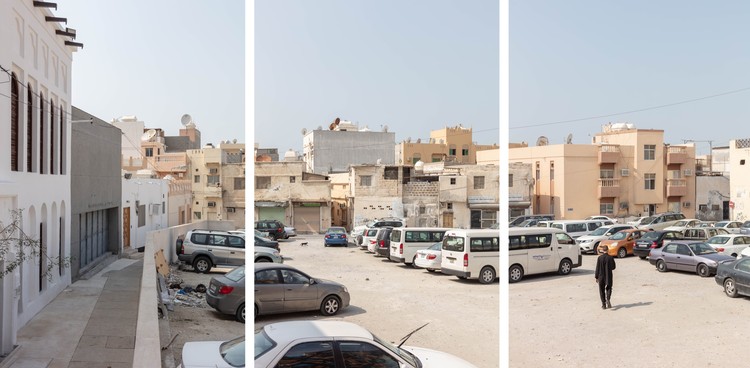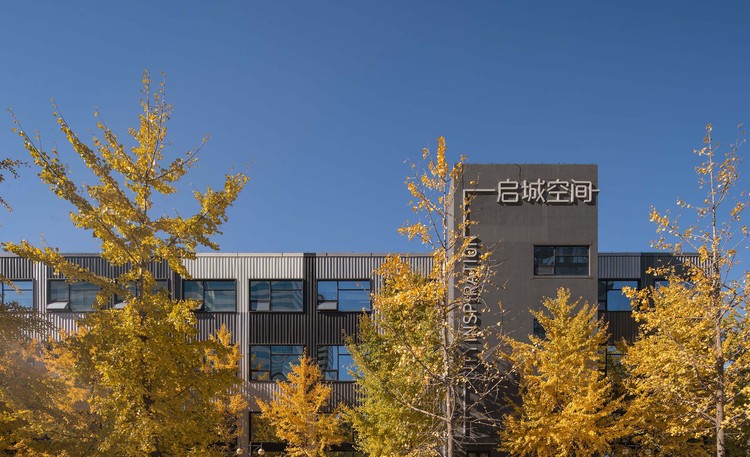Leura Lane Cooper Scaife Architects
2013-11-21 01:00
架构师提供的文本描述。这个项目是一个专门为农村街区设计的节能模块化住宅系统的原型。Leura巷住宅是一个“2卧室模式”,由两个独立的展馆组成:一个包含一个车库和一个储藏室;另一处设有起居区。这两座展馆的独立性使其完全可以灵活地将车库定位到面向街道的地方,而住宅的起居区则可以向北或朝向更好的景色。这座房子的规划是线性的,其一端是起居区。中心的入口和公用空间以及另一端的卧室。该计划为在基本模式中增加额外的卧室、浴室或起居空间提供了灵活性。
Text description provided by the architects. This project is a prototype for a system of energy-efficient modular housing, designed specifically for rural blocks. The Leura Lane house is a ‘2 bedroom model’ comprised of two separate pavilions: one containing a carport and storerooms; the other containing living quarters. The independence of these two pavilions gives complete flexibility to orientate the carport to face the street, while the living areas of the house can be oriented north or towards preferred views. The house is linear in plan, with living areas at one end, the entry and utility spaces in the centre and bedrooms at the opposite end. This plan provides the flexibility for additional bedrooms, bathrooms or living spaces to be added to the basic model.
节能是本设计的重点。通过使用被动式设计原则、现成的材料和标准的建筑方法,这座房子获得了8.2星级的能量等级。居住空间的方向是在冬季最大限度地利用太阳能,为提供夏季阴凉处,设计了大型Skillion屋顶。墙壁和天花板都安装了高强度的体积和反射隔热层,所有的窗户都是双层玻璃,内腔充氩。热质量位于楼板上,在维多利亚州南部主要寒冷的气候下,它与地面隔绝以保持温暖。狭小的房屋平面图允许大量交叉通风,屋顶空间通风,以供夏季降温。
Energy efficiency is a strong focus of the design. The house achieved an 8.2 star energy rating through the use of passive design principles, readily available materials and standard construction methods. The living spaces are oriented to maximise solar gain in winter, with the large skillion roof calculated to provide summer shade. High levels of bulk and reflective insulation are installed in both the walls and ceiling and all windows are double glazed with an argon-filled cavity. Thermal mass is located in the floor slab, which is insulated from the earth to maintain warmth in the predominantly cold climate of southern Victoria. The narrow floor plan of the house allows for substantial cross ventilation and the roof space is vented for summer cooling.
这是一个半乡村的景观,在城镇的边缘,包含大量的本土植被。利用自然材料对此做出反应是一个重要的考虑因素,外部和内部都使用了一个有约束的、简单的调色板。室内有一个温暖的,整个房子和澳大利亚硬木广泛使用的土质环境和水磨石瓦片。外面涂有斑点的口香糖,随着建筑的老化,这种树胶会慢慢地变成银灰色。
The site is a semi-rural landscape on the edge of town that contained a significant amount of native vegetation. The use of natural materials that responded to this context was an important consideration and a restrained, simple palette was used both externally and internally. The interior has a warm, earthy ambience with terrazzo tiles throughout the house and Australian hardwoods used extensively. The exterior is clad in spotted gum which will slowly weather to a silver grey as the building ages.
 举报
举报
别默默的看了,快登录帮我评论一下吧!:)
注册
登录
更多评论
相关文章
-

描边风设计中,最容易犯的8种问题分析
2018年走过了四分之一,LOGO设计趋势也清晰了LOGO设计
-

描边风设计中,最容易犯的8种问题分析
2018年走过了四分之一,LOGO设计趋势也清晰了LOGO设计
-

描边风设计中,最容易犯的8种问题分析
2018年走过了四分之一,LOGO设计趋势也清晰了LOGO设计
























































































